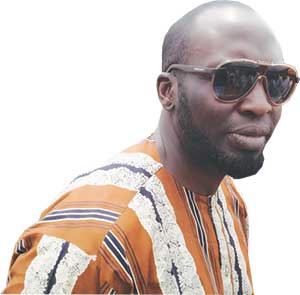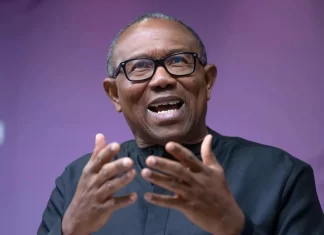Yahaya Maikori is a lawyer and co-founder of Chocolate City, a Nigerian record label. Law Allianz, the law firm where he is senior partner, is on top of contemporary entertainment issues, representing and advising artistes, publishers, record labels, producers and a host of others. He has also advised state governments, institutions and helped several on issues involving licensing, taxation, jurisdiction and online gaming in Nigeria’s growing gaming industry. In this interview with Assistant Life Editor, TERH AGBEDEH, the speaker at ICE 2015 conferences on World Regulatory Affairs talks about African gambling sector concerns for 2015.
There is a lot of interest in African gambling and iGaming markets; what do you think is driving this?
Many wide-ranging factors account for the increased interest. I think the first will be the large youthful population, which provides new market opportunities for operators coming from matured or saturated markets. Secondly, increased mobile/internet access provides cheaper and safer means for operators to enter new markets. But for me, the most important factor for the increase is the democratisation of contemporary cultures and sub cultures occasioned by the convergence of technology, hospitality, internet, entertainment and social media. A case in point is the role of football (premiership) in the explosion of sports betting industry – the premiership franchise has a cult following here in Africa. Nigeria is home to the second largest fan base outside of the United Kingdom. So you can see how easy it is to migrate those fans from watching football to becoming active in the betting industry.
Where in Africa are the best market and growth opportunities for international operators?
Africa is largely an untapped market; almost all African countries depending on the operator offer opportunities of varying types. In terms of market size, Nigeria has a population of 170 million of which 65 per cent are below the age of 35, with less than five per cent involved in any kind of gambling activity.
Kenya already has a gambling culture, cheap internet access and an entrenched mobile commerce culture, along with its population of 50 million, which makes it is a very attractive market. Ghana’s appetite for gambling is growing with a population of about 50 million. South Africa has the most matured market in Africa. New entrants may find it very competitive to establish a footprint there, but then it is a structured market with robust legislation and supporting infrastructure. Rwanda is one of the smallest countries in terms of population (10 million). It has in place a solid regulatory framework, but we haven’t witnessed much investments or growth in that market yet.
Generally speaking, the Africa market is in its infancy compared to Europe, but almost any country you choose has opportunities for growth, depending on the size of your wallet.
Africa is a huge continent to cover; do operators looking to enter what factors and research have to consider and undertake?
As a lawyer, my first advice would be for potential investors to take a holistic look at the investment laws, especially gambling laws, in the concerned market; back in 2007, it was a nightmare advising my first client – for a casino licence, several agencies were contending as the rightful licensors/regulators. After our client commenced its normal operations, it was a herculean task assisting them with regulatory compliance because of conflicting interpretation and gaps in the laws of different states/agencies of the federation. Some of the government agencies like the police and tax authorities already had a suspicious attitude towards the business. Seven years, after some of those issues are now settled, paving way for a degree of certainty in the industry; but that was achieved at great cost to my client.
Another issue that is worth taking a critical look at is the local culture and perception surrounding gambling in the interested market. Xenophobia might be another point, though it exists in a subtle form, but to get a buy-in from customers, you need to partner with locals or make the locals the face of your business.
Acquisition may be a faster way of growing market share, as that insulates you from some of the teething problems which an operator might be unaware of.
Can successful western iGaming be transferred to the African market, or should operators start from scratch and with a fresh perspective for Africa?
It all depends on the company’s strategy. Most of my clients, especially the European operators, do not want anything to do with retail; unfortunately the market does not currently favour iGaming as a stand-alone strategy. Our markets are still predominantly retail-driven, with a bit of online gaming, partly because of inadequate infrastructure or lack of enlightenment.
Surprisingly, the telcos, which have been key drivers of e-commerce have been quite slow in coming to the party; they have not impacted on the industry as they have in others, either because of a poor understanding of the industry or their inability to fit some of the products into their traditional commercial models. In recent times, however, ‘gamification’ has become a buzz word. With this attitudinal change, I expect to see the telcos play a defining role in the industry.
What should operators in African gambling be preparing for?
Nigeria has an internet penetration rate of about 20 per cent surpassing United Kingdom (ranked eighth globally for three years running). The government’s cashless society policy has given every bank account owner access to Automated TYeller Machine (ATM) cards; Kenya and South Africa have internet penetration of 14 per cent and 16 per cent in that order, and I think all around Africa you will find similar growth rates. User-friendly smartphones are becoming cheaper and more affordable by the day.
Konga, an online retail store in Nigeria, says that 60 per cent orders are via the mobile device. With this information as a background, I believe that operators should be looking at simple mobile apps, low participation fees and easy payment solutions to capture and engage this huge mobile market – Nigeria has 121 million mobile subscribers.
With regards to African market development, what topics and discussion should drive the 2015 agenda. Where should market progress be focused on?
For me, robust legislation, especially online gaming regulation, harmonisation of relevant laws and industry specific tax, needs to be put in place by most of these countries. I think there is a laissez faire attitude towards regulation by most African states because of the unresolved moral question associated with gambling. But as I have canvassed in different for a, the internet has made it impossible for that attitude. It is either you regulate and protect your citizens as well as generate revenue for the state or you expose your citizens to irresponsible gaming and fraud from pirate/irresponsible operators.
It is a catch-22 for such states; but with increased budget deficits, we shall see more jurisdictions resort to this industry to shore up their revenue.















